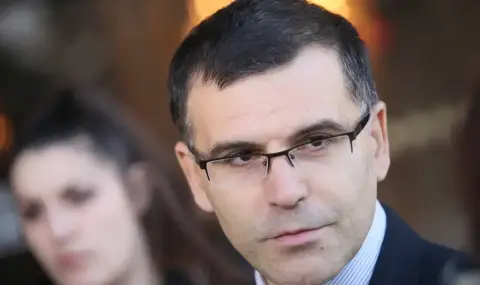„The chance of entering the eurozone from January 2026 is negligible. The first reason is objective and comes from Brussels and Frankfurt - we do not meet all the criteria at this moment. The second is the coalition, which is clear - there is the BSP on the left, the center - GERB, ITN is more on the right, we do not know where Dogan's people are on this topic. There is a big fan and I am convinced that there are people in it who say „now is not the time.“
This is what he said in „120 minutes“ former Finance Minister and Director of Applied Research at the Institute for Financial Markets at the London School of Economics and Political Science Simeon Dyankov.
Although we can meet the inflation criterion by the beginning of February, the deficit will stop us on the way to the eurozone, which, according to Dyankov, will not be met in the next budget.
„I doubt that Temenuzhka Petkova and this coalition will manage to bring it to 3%. The very talk about this deficit is heard in Brussels and Frankfurt and when we submit this report, and I hope we do not rush, they will say „how did you solve the large deficit“. In my opinion, this is exactly the news that has passed between the drops in Bulgaria, that Temenuzhka Petkova went and met with the Commissioner for Economics and the Euro and the President of the Eurozone and after she returned she began to give a more measured tone. I am convinced that they told her “you are not ready, if you apply now, the report will be negative“, which automatically, according to the Maastricht criteria, takes us two years into the future and January 2028 is the earliest possible date if we apply with a report that is not good“, he pointed out.
In his words, if salaries in the Ministry of Interior are increased by 50%, we will certainly be out of step with the euro at least until 2028.
“There is no way the budget can be patched up with any other measures in its revenue section in order to cover this additional large burden. So far, this has not happened thanks to the fact that we do not have an adopted budget. In this coalition, I think an increase in salaries in the Ministry of Interior will happen and I do not believe that we can meet the criteria for entering the eurozone from January 2026. If we really want to enter the eurozone, the only thing that can be done is a sharp reduction in spending. So far, the ruling coalition has not proposed any serious measures, they are proposed by Asen Vassilev, and so far the most meaningful ones are from the DB“, added Simeon Dyankov.
The increase in tariffs by the US
„If America imposes tariffs on Europe, as Trump has promised, the most correct solution is to impose tariffs reciprocally. If tariffs are imposed, they will be imposed first on China, then on Europe, and it must reciprocally do the same. Does this lead to anything good in the global context - no, but it brings big points to Trump, especially in the so-called. red states, where he is very popular and people expect this from him“, commented the former finance minister.
According to him, the demonstrated closeness of billionaires to Donald Trump during his inauguration is related precisely to the threat of tariffs.
“The French multi-billionaire and the richest man in Europe, Bernard Arnault, was not by chance in Washington, because tariffs usually start with these goods - champagne and more expensive luxury goods, and he owns a large part of these chains in France. This is not just a technological oligarchy, but also the new media oligarchy. These people, in addition to managing a large part of the new technologies, more importantly for Trump and his administration, they also manage the new media in the US and around the world“, noted Simeon Dyankov.
